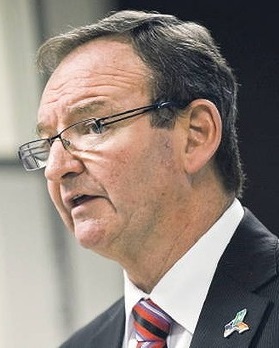State of public service probed
 The Public Service Commission has released its State of the Service Report for 2013, and it contains some interesting revelations, big criticisms and places for improvement.
The Public Service Commission has released its State of the Service Report for 2013, and it contains some interesting revelations, big criticisms and places for improvement.
One of the most topical findings of the report is in the number of public sector job losses under the previous Labor government’s ‘efficiency dividends’. In 2012-2013 redundancy payouts hit a 13-year high, while resignations hit their lowest level in that time. This suggests that many took golden handshakes when offered, or clung to their positions instead.
Public Service Commission data shows the workforce decreased by more than 907 employees to 167,257; 679 staff were retrenched and 4437 bureaucrats resigned
Public Service Commissioner Stephen Sedgwick says resignations and redundancies “are inversely related,” during times of downsizing.
“There was a bit of a tick-up in the resignation until about 2008. The global financial crisis might have changes people's view of the sense of leaving just yet,” Sedgwick said.
“You'll have seen over the last year or so that there has been a level of retrenchment across the public service as agencies have restructured their workforces.
“That's not unusual when you have the added overlay of downsizing, remember the peak [in staff numbers] was 2012 so we've started to reduce already and we will continue to do so for some years.”
The Public Service Commissioner says the report buries claims that the public sector has a strong “sickie culture” of high absenteeism.
“Unscheduled absence” did increase in the service in 2012-13, with the median amount of time off going up by half a day to 11.6 days per public servant for the year.
“Data from the employee census indicates that almost half of the APS workforce reported they attended work while not feeling well - they were either ill or injured - in the fortnight prior to the survey,'' Mr Sedgwick told a pre-publication briefing,” Mr Sedgwick says.
“A large proportion of these employees, over 40 per cent, reported there was no loss of productivity due to their illness or injury.
“Their willingness to work however, is hardly consistent with a view sometimes heard there is a sickie culture in the Australian Public Service.”
But the Commission may investigate further.
“We intend to go out to the agencies who have experienced a big increase, or whose rates of unscheduled absences are relatively high, and ask them to look again at their data and their practices to see what we can learn again about what works and what doesn't work,” the Commissioner said.
And finally in the report’s ‘capability review’ section came damning claims about certain departmental cultures.
The Federal Treasury, Department of Foreign Affairs and Trade and the Finance and Deregulation Department were all singled-out as targets for criticism.
“There is a widespread view among stakeholders and line agencies that Treasury is closed to external experience and expertise and that practical implications are not always given sufficient consideration in forming policy advice,” the review found.
“The department has been variously described as institutionalised, proud and lacking exposure to non-Treasury ideas and practices. A number of stakeholders still referred to Treasury as arrogant and dismissive.”
“DFAT still faces difficulties in clearly articulating to outsiders what it does and adequately measuring the outcomes of its activities,” the reviews wrote.
“DFAT is seen as too detached from the work of the APS as a whole, not contributing sufficiently to (or learning enough from) the wider public service.”
Finance and Deregulation was praised for its effectiveness, but “co-ordination and a common sense of direction and purpose across the department has … proved difficult,” the review team added.
“The image of the department as a ‘federation’ is reinforced by the geographical location of groups, including some of the deputy secretaries, in different buildings.”







 Print
Print